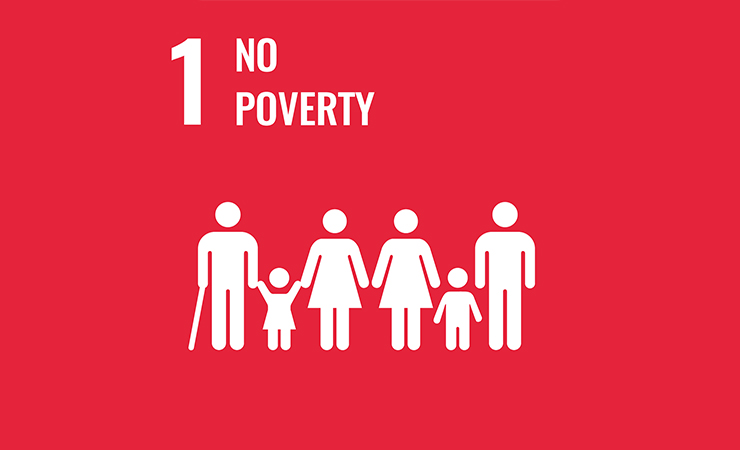- Beranda
- Profil
- Pendidikan
- Riset & Pengmas
- Unit Kerjasama
- Fasilitas & Umum
- Akses Cepat
1.2.1 Students receiving financial aid
To ensure equal access to education at the Faculty of Engineering, Universitas Indonesia, several scholarships have been given to students who need financial assistance. During 2022, 1200 students out of a total of 7482 FTUI students will receive scholarship benefits from various sources, including DIKTI, Ministry of Education, private sector and individuals. Of the 1200 students who received scholarship assistance, 372 were low-income students.
1.3.1 Bottom financial quintile admission target
Targets to admit students who fall into the bottom 20% of household income group (or a more tightly defined target) in the country.
–
1.3.2 Bottom financial quintile student success
Graduation/completion targets for students who fall into the bottom 20% of household income group (or a more tightly defined target) in the country.
–
1.3.3 Low-income student support
Provide support (e.g. food, housing, transportation, legal services) for students from low income families to enable them to complete university.
FTUI has a program with alumni which takes the initiative to help students who are in the bottom 20% of household income groups, through providing the Blue Springs Scholarship (MAB). The MAB Scholarship has 4 programs, namely Regular Student Scholarships, Regular Scholarships for Children of FTUI Employees, Thesis Scholarships and Achievement Scholarships. In 2022, there are 30 students who will receive this scholarship.
In addition, the University of Indonesia has a program providing subsidies to students from low-income families through BOP-Berkeadilan (Fair Education Fees). The Faculty of Engineering is always involved in this program and will provide tuition fee adjustments for students who meet the criteria.
Evidence link:
1.3.4 Bottom financial quintile student support
Programmes or initiatives to assist students who fall into the bottom 20% of household income group (or a more tightly defined target) in the country to successfully complete their studies.
The University of Indonesia has a program or initiative to help students who are in the bottom 20% household income group by providing the “KIPK/Indonesia Smart College Card Program” Scholarship. In 2022, there are 247 FTUI students who will receive this assistance.
Evidence link:
Information on Acceptance of the KIP College Scholarship Phase 1
1.3.5 Low or lower-middle income countries student support
Schemes to support poor students from low or lower-middle income countries (e.g. offering free education, grants).
1.4.1 Local start-up assistance
Provide assistance in the local community supporting the start-up of financially and socially sustainable businesses through relevant education or resources (e.g. mentorship programmes, training workshops, access to university facilities).
FTUI has an assistance program for local start-ups (FTUI students) through guidance and training, namely the Entrepreneurship Camp Program i3 FTUI “Innovation into Invention”. The FTUI i3 Entrepreneurship Camp program was held in May-June 2022 and successfully selected 10 groups. The i3 program is the largest business incubator at FTUI, under the coordination of Entrepreneurship and Innovation (WiN) and CDC FTUI in collaboration with E-Corp FTUI. In this program, 10 groups were successfully recruited, (4 through individual schemes and 6 through group schemes), here are the names of 10 groups that were successfully registered in the i3 FTUI program:
Evidence link:
Onboarding Day Entrepreneurship Camp “Innovation into Invention” 2022
1.4.2 Local start-up financial assistance. Provide financial assistance to the local community supporting the start-up of financially and socially sustainable businesses.
Lecturer at the Faculty of Engineering, University of Indonesia (FTUI), Dr. Muhammad Sahlan, S.Sc., M.Eng together with the UI Community Service and Empowerment Team introduced two trigona bee box innovations in several East Lombok Islamic boarding schools, namely Zainuddin At-Sani Islamic Boarding School and Al-Ihsani NW Dasan Baru Islamic Boarding School in the Masbagik area , East Lombok. This program aims to help Islamic boarding school environments such as cooperatives, teachers and students to participate in the development of trigona bees, thereby increasing the productivity and income of Islamic boarding school businesses in Masbagik, East Lombok. The UI Community Service and Empowerment Team provided financial assistance of 10 million for 2 Islamic boarding schools. The assistance is in the form of a bee colony. This program provides 2 innovations, namely the development of trigona bee biopharmaceuticals and a very practical process for harvesting trigona bee honey, without killing stingless bees, so that students can more easily harvest trigona bee honey.
Evidence link:
Economic Utilization of Trigona Bee Biopharmaceuticals in Masbagik, East Lombok
1.4.3 Programmes for services access. Organise training or programmes to improve access to basic services for all.
The Community Service Team (Pengmas) from the Bioprocess Engineering Study Program, Faculty of Engineering, Universitas Indonesia (FTUI) consists of Dr. Kenny Lischer, S.T., M.T.; Apriliana Cahya Khayrani, S.TP., M.Eng., Ph.D.; and Retno Wahyu Nurhayati, S.TP., M.Eng., Ph.D.Eng. conducted butter avocado cultivation training for avocado farmers in Iwul Village, in collaboration with the Center for Tropical Horticultural Studies, Bogor Agricultural University. Avocado farmers in Iwul Village, Bogor, West Java, are one of the many farming communities that choose butter avocados for cultivation. The team conducted “Training for Trainers” and education related to how to cultivate avocados and a dense planting system for butter avocado farmers in Sukamantri, Bogor, West Java. In this activity, the participants were given materials and practices related to selecting seeds and varieties, preparing rootstock seeds, sowing rootstock seeds, and preparing scion for grafting.
Evidence link:
FTUI Teaches the Top Grafting Method to Increase Avocado Butter Harvests in Limited Land
1.4.4 Policy addressing poverty. Participate in policy making at local, regional, national and/or global level to implement programmes and policies to end poverty in all its dimensions.
–

